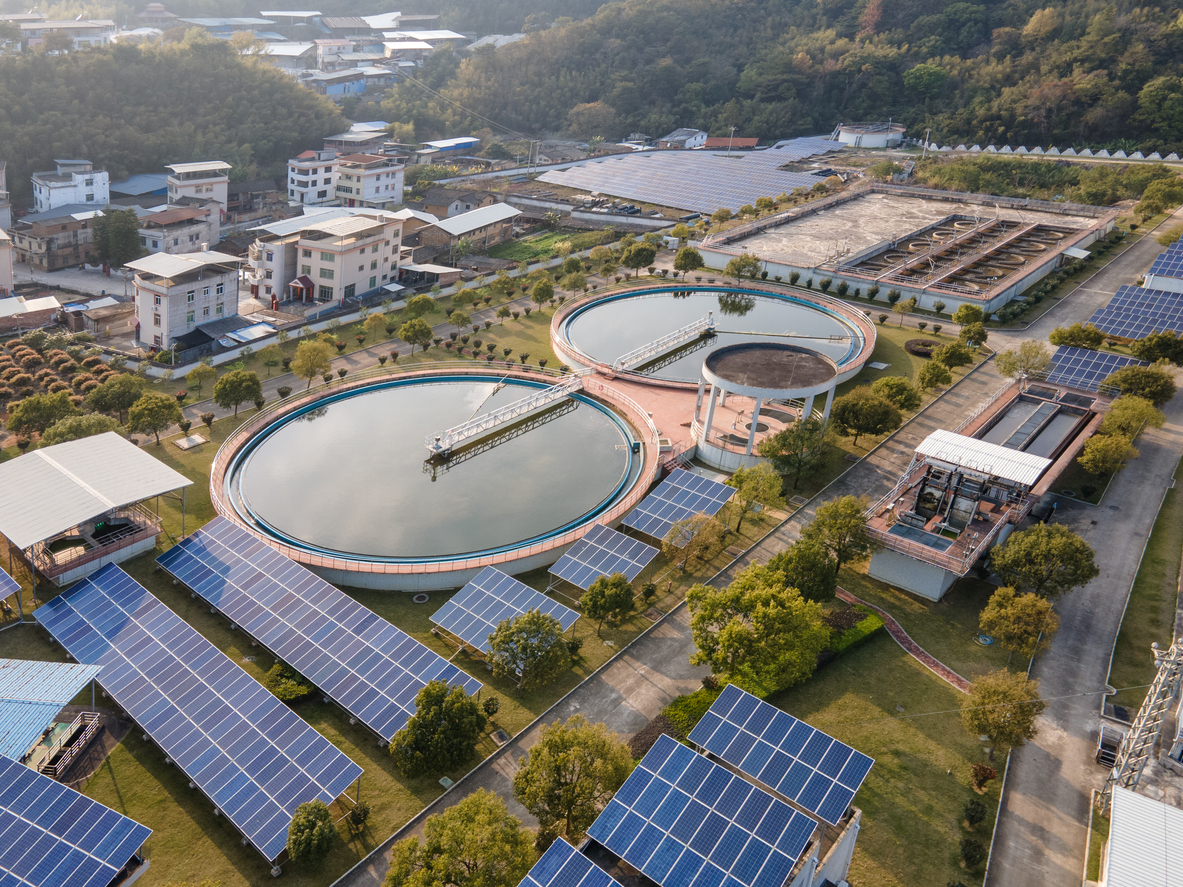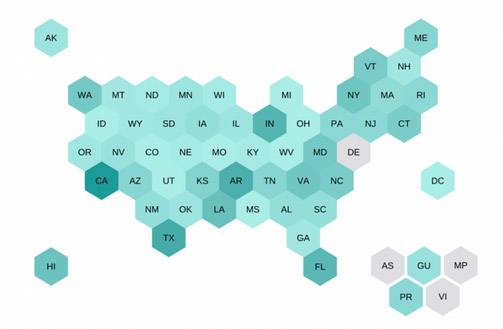
Blog
Biobot Community Success Story: Rollins College, Winter Park, Florida

June 1, 2021
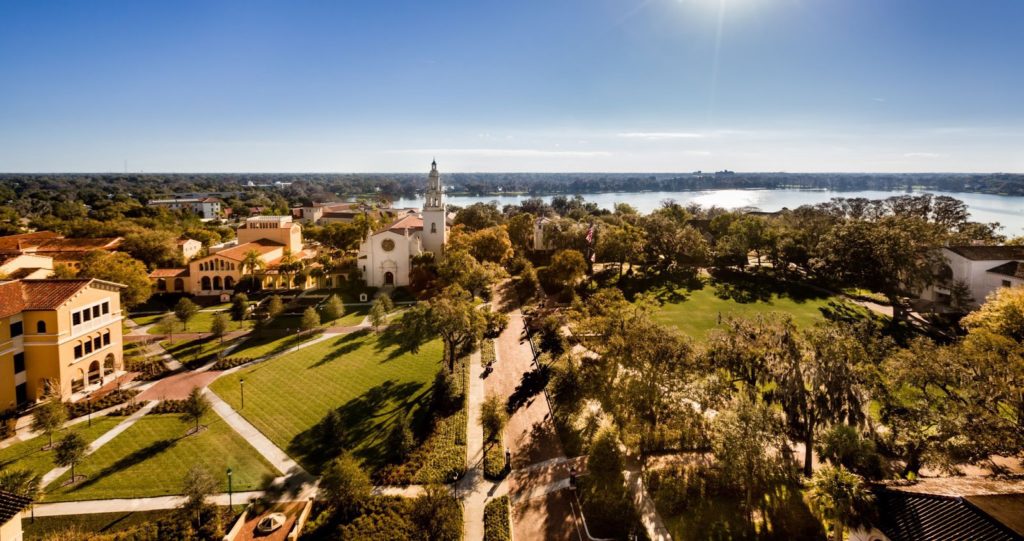
“With Biobot’s data, we can identify the embers of what could become a forest fire.”
Susan Rundell Singer, Vice President for Academic Affairs and Provost, Rollins College
A Unique Challenge and Opportunity for Higher Education
Across the country, colleges and universities were forced to make difficult decisions about the Fall 2020 semester as a result of the ongoing COVID-19 pandemic. Rollins College was no exception. However, early in their planning, administrators saw a unique opportunity to preserve some of the traditional college experience by utilizing new, innovative public health tools.
Rollins College is a private liberal arts college in Winter Park, Florida- just outside downtown Orlando. The majority of Rollins’ 3,000+ students are undergraduates, but the College also offers a Doctorate in Business Administration and several Continuing Education degrees at both the graduate and undergraduate level. This combination of residential and non-traditional students gives Rollins a unique feel relative to other small liberal arts institutions.
Because of the College’s location near Orlando, Rollins attracts visitors on a regular basis, temporarily increasing the number of people on campus and introducing variability in normal campus population measurements. Similarly, students in graduate and continuing education programs are not required to be on campus regularly, causing further day-to-day fluctuation of the campus population.
Presented with this rare set of challenges, Rollins College administrators had the difficult task of creating, and then maintaining, COVID-19 protocols applicable to their diverse community while minimizing disruption to its core mission: Educating students.
One of the first steps Susan Rundell Singer, the college’s Provost and Vice President for Academic Affairs, decided to take was to leverage wastewater-based epidemiology. Months before the pandemic began, Singer — who is also a genomics expert — had attended a presentation on wastewater-based epidemiology’s effectiveness in detecting opioids, influenza, and other pathogens of public health concern. She realized that this method can also be applied to understand the concentration of SARS-CoV-2 virus in wastewater, which would indicate the presence and spread of COVID-19 across the campus community.
“I got it into my head that wastewater-based epidemiology would be such a great thing for a place that couldn’t test everybody,” ~Susan Singer.
“A robust clinical testing program using nasal swabs for everyone on campus would cost $10 million a semester. We don’t have that revenue flow at our modest institution,” Singer said.
After hearing recommendations from her peers in the science and higher-education communities and evaluating a variety of options, Singer decided to partner with Biobot Analytics to monitor COVID-19 on campus. Biobot’s wastewater data and analytics allowed Rollins to continue to deliver a quality education to students while lessening the risk of infection at a cost-effective rate.
Administrators adopted a multi-layered strategy where wastewater surveillance was complementary to other measures that helped mitigate the spread. They reduced dorm rooms to single occupancy, and in parallel, dedicated an entire building to housing and isolating those who tested positive or had been exposed to the virus. The start of the academic year was delayed to help flatten the expected surge in cases. And, they implemented social distancing in classrooms, including adding outdoor classrooms that took advantage of the Florida climate.
These actions resulted in tremendous success. “We’ve seen no spread of COVID-19 within any of our classrooms or any of our organized activities,” said Singer.
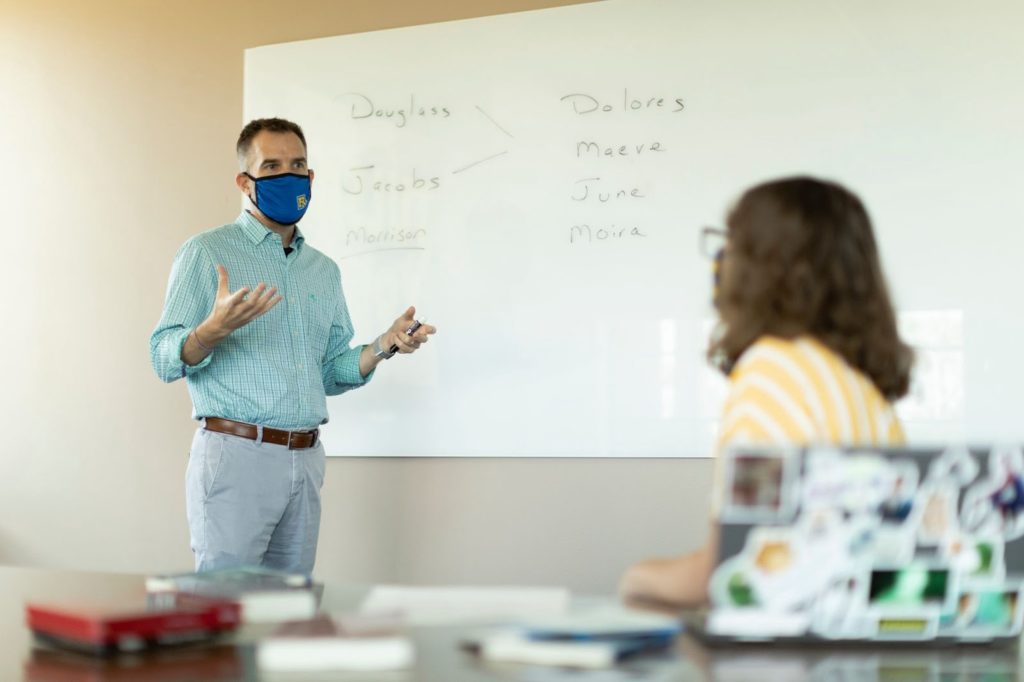
A Culture of Evidence-Informed Decision Making
As many students, faculty, and staff returned to campus in the fall of 2020, the College’s main concern was the health of the individuals living in residence halls and the potential for communal living to be a driver of infections. Biobot played a major role in helping mitigate that risk by providing residence-hall-level wastewater tests and analysis.
The increased granularity of the Biobot data enabled administrators to see whether COVID-19 was present in specific residence halls and if any could be facing a potential spike. When the wastewater showed markers of increased infections, the school was able to direct pop-up clinical testing to those locations, allowing them to quickly identify and isolate infected individuals. This reduced the scale of the spread by reducing the chains of transmission.
Compared to the surrounding community, administrators at Rollins were able to keep infection numbers low thanks to the actions they took, which were informed by Biobot’s data. Rollins Director of Institutional Analytics Meghal Parikh had for many years cultivated a “culture of evidence-informed decision making” around the campus. Biobot fit right in.
“When Biobot wastewater data trend upward, we immediately sit down and look at the other puzzle pieces so that we can focus and implement clinical testing,” said Singer. “With Biobot’s data, we can identify the embers of what could become a forest fire.”
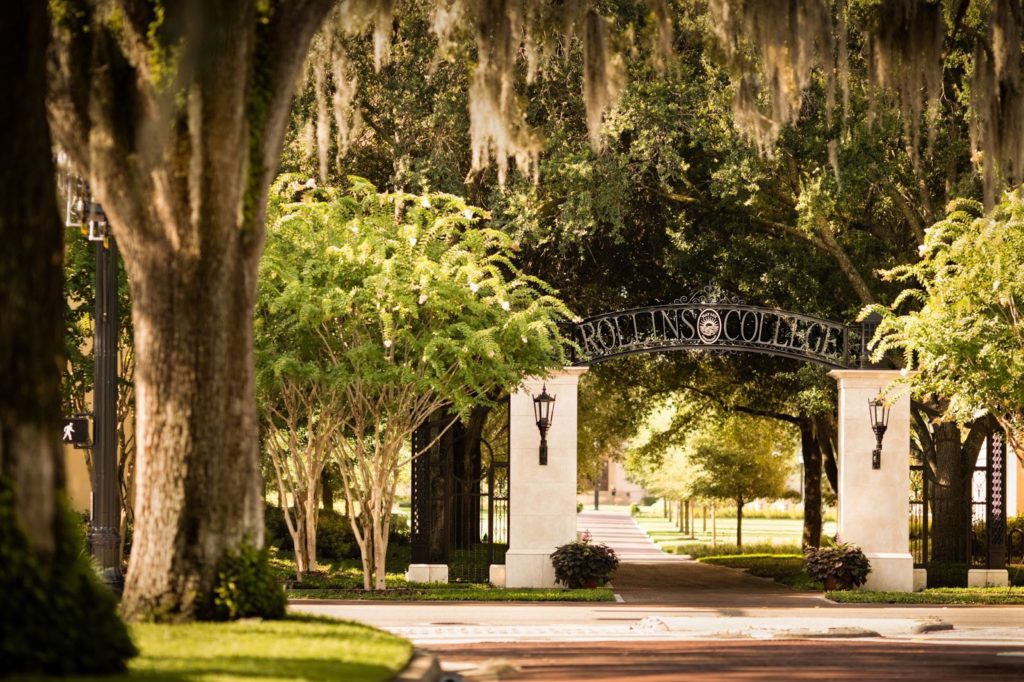
Looking Ahead by Looking Below
As focus within the pandemic turns to variants of concern and vaccination, Rollins is preparing for vaccine rollout on its own campus, and is using Biobot’s ability to detect the B.1.1.7 variant to prioritize testing and vaccination efforts. Wastewater data will also be used to ease restrictions as COVID-19 wanes. Looking ahead to the next academic year, the college is planning to allow everyone back on campus with full occupancy in dormitories in-line with CDC’s guidance, if the Biobot data shows decreased levels of COVID-19 in the campus’s wastewater.
The team at Rollins feels confident in making these plans, because “[Biobot is] our CIA, our FBI, our secret service for the microbes, in the background helping us all stay safe”, says Susan Singer.
And, if cases start increasing again, Rollins College is confident in its ability to get out in front of an outbreak — they’re armed with a wastewater-based data resource that exists right under their feet that is tested and analyzed by Biobot Analytics.
Written by Biobot Analytics
Biobot provides wastewater epidemiology data & analysis to help governments & businesses focus on public health efforts and improve lives.



